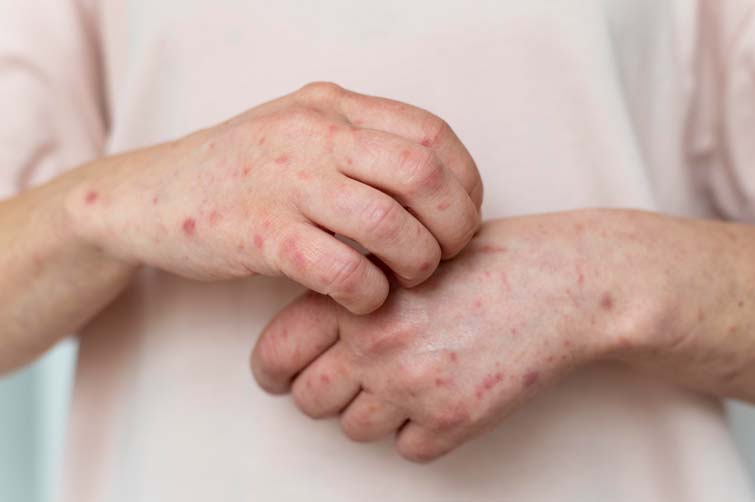
Sexually transmitted diseases (STD) pose significant health risks. They can have severe consequences if left undiagnosed through accurate STD testing in Bridgeport, CT. While numerous STDs exist, some are dangerous and can lead to serious long-term health complications. Understanding these dangerous STDs and their treatments is essential for treatment and early detection through STD testing in Bridgeport, CT. In this article, we will explore five of the most dangerous STDs and how they are treated.
This is one of the most well-known and deadly STDs. It attacks the body’s immune system, specifically targeting CD4 cells, which are essential for fighting infections. It is crucial to take STD testing in Bridgeport, CT, as early diagnosis and timely medical intervention can significantly improve outcomes for individuals living with HIV and help prevent further transmission of the virus to sexual partners.
One of the most significant complications of HIV is the increased risk of opportunistic infections. As the immune system weakens, the body cannot fend off infections that a healthy immune system could easily control. Common opportunistic infections associated with advanced HIV include pneumonia, tuberculosis, candidiasis (thrush), and cytomegalovirus (CMV). These infections can be severe and difficult to treat, compromising the patient’s health.
Without proper medical intervention, HIV can progress to AIDS. AIDS represents the advanced stage of an untreated HIV infection. It severely weakens the immune system, diminishing the body’s ability to combat infections and diseases. In this stage, individuals become vulnerable to life-threatening conditions. Even ordinary infections can escalate into serious complications without proper medical care.
HIV can also affect the central nervous system, leading to neurological complications. Neurological conditions associated with HIV include HIV-associated dementia, peripheral neuropathy (numbness and weakness in the extremities), and HIV-related encephalopathy. These complications can cause cognitive impairment, motor dysfunction, and reduced quality of life for those living with HIV.
This is the cornerstone of HIV treatment. ART involves using a combination of antiretroviral drugs to suppress the replication of the virus in the body. These medications target different stages of the HIV life cycle, preventing the virus from multiplying and reducing its presence in the bloodstream. By effectively suppressing the viral load, ART helps preserve the immune system and slow the progression of HIV to AIDS. It also significantly reduces the risk of transmitting the virus to sexual partners. ART is tailored to each individual’s specific needs, and centers for STD testing in Bridgeport, CT, closely monitor patients to ensure medication adherence and assess treatment effectiveness.
HIV treatment involves regular monitoring of the viral load and CD4 cell count to assess the effectiveness of ART. The viral load test measures the amount of HIV in the bloodstream, while the CD4 cell count indicates the immune system’s strength. By tracking these parameters, healthcare providers can adjust the treatment regimen if needed and detect potential treatment failure or drug resistance. Other laboratory tests are conducted to assess liver and kidney function, monitor for possible side effects of medications, and screen for other infections and complications associated with HIV.
Adherence to ART is critical for its success. Patients must take their medications consistently and as prescribed by their healthcare providers. Missing doses or not taking medications as directed can lead to drug resistance and treatment failure. Centers for STD testing in Bridgeport, CT, emphasize the importance of medication adherence and offer counseling and support to help patients adhere to their treatment plans. Lifestyle support, adherence to AR Therapy, and regular STD testing in Bridgeport, CT, also play a vital role in managing HIV and supporting overall well-being.


Syphilis, caused by the bacterium Treponema pallidum, can lead to severe health problems if not treated promptly. The disease evolves through various stages, each marked by unique symptoms. Early stages of syphilis feature painless sores or chancres, which might disappear without treatment. However, if not identified early via STD testing in Bridgeport, CT, syphilis can advance to more serious secondary and tertiary stages, impacting multiple organs and leading to substantial health complications.
Neurosyphilis occurs when the bacterium Treponema pallidum, which causes syphilis, invades the central nervous system. This can happen at any stage of syphilis, but it is more likely to occur in the late or tertiary stage. Neurosyphilis can lead to various neurological symptoms, including headaches, difficulty coordinating movements, changes in behavior and personality, and even paralysis. It is essential to diagnose neurosyphilis promptly through STD testing in Bridgeport, CT, to prevent irreversible neurological damage.
In the late or tertiary stage of syphilis, the infection can affect the cardiovascular system, leading to cardiovascular syphilis. This condition can cause inflammation of the blood vessels, resulting in aortic aneurysms (weakening and bulging of the aortic wall) and aortic regurgitation (blood flowing back into the heart). Without early diagnosis through STD testing in Bridgeport, CT, cardiovascular syphilis can lead to life-threatening complications, such as heart failure and aortic rupture.
Syphilis can be passed from a pregnant woman to her unborn baby during pregnancy or childbirth. Congenital syphilis can result in serious health problems for the baby, including stillbirth, premature birth, low birth weight, developmental delays, and organ damage. Early detection through STD testing in Bridgeport, CT, and appropriate treatment during pregnancy can prevent transmission to the baby and reduce the risk of congenital syphilis.
The primary treatment for syphilis is antibiotics, with the specific type dependent on the infection stage. A single dose of penicillin typically suffices to treat early-stage infections. For those allergic to penicillin, other antibiotics may be administered. It’s crucial to adhere to the full antibiotic regimen as prescribed by healthcare providers to ensure the complete elimination of the Treponema pallidum bacterium, the causative agent of syphilis
After receiving antibiotic treatment, regular follow-up appointments with a healthcare provider are essential. During these visits, the healthcare provider will monitor the individual’s response to treatment and conduct follow-up STD testing in Bridgeport, CT, to ensure the infection has been successfully treated. Follow-up and monitoring are crucial to detect any treatment failure or recurrence of the infection.
As syphilis is sexually transmitted, those diagnosed should notify their sexual partners about the infection. This action empowers partners to pursue testing and, if needed, treatment, thereby preventing further transmission. Timely notification and STD testing in Bridgeport, CT, are pivotal in curbing syphilis transmission and limiting its spread.
In cases where syphilis has progressed to its more severe stages or has resulted in complications such as neurosyphilis or cardiovascular syphilis, additional treatment may be required. Treatment for complications may involve a more extended course of antibiotics and specialized care to manage the specific complications associated with advanced syphilis.

Hepatitis is a condition characterized by liver inflammation and can be caused by various factors, including viral infections. Several types of viral hepatitis can be transmitted sexually, with hepatitis B and hepatitis C being the most common. Chronic hepatitis infections can lead to severe complications if left undiagnosed and untreated. Regular STD testing in Bridgeport, CT, is crucial for early detection and appropriate management of hepatitis.
Chronic hepatitis infections, especially hepatitis B and hepatitis C, can lead to liver cirrhosis, a condition where the liver becomes scarred and progressively loses its function. Liver cirrhosis can result in complications such as fluid accumulation in the abdomen (ascites), bleeding disorders, and an increased risk of liver cancer (hepatocellular carcinoma). Early detection through STD testing in Bridgeport, CT, and timely treatment can help prevent or delay the progression of liver cirrhosis.
In advanced stages of chronic hepatitis, the liver may reach a point where it can no longer perform its essential functions adequately. Liver failure is a life-threatening condition that requires urgent medical attention. When the liver fails to function correctly, toxins build up in the bloodstream, leading to various symptoms and complications. Early diagnosis and appropriate medical intervention are vital to managing liver failure.
Chronic hepatitis B and C infections significantly increase the risk of developing liver cancer. Hepatocellular carcinoma is one of the most common types of liver cancer and has a poor prognosis when detected at an advanced stage. Regular STD testing in Bridgeport, CT, can help identify individuals at risk of chronic hepatitis infections and facilitate early detection and treatment of potential liver cancer.
The treatment of hepatitis, especially for viral hepatitis types such as hepatitis B and hepatitis C, often involves using antiviral medications. These medications target the virus and suppress its replication in the body. Antiviral therapy aims to reduce the viral load, slow the progression of liver damage, and prevent complications such as cirrhosis and liver cancer. The specific antiviral drugs used and the duration of treatment varies depending on the type of hepatitis and the individual’s medical history.
In addition to antiviral medications, supportive care is essential in managing hepatitis and promoting liver health. Supportive care may include lifestyle changes, such as adopting a healthy diet, avoiding alcohol and certain medications that may stress the liver, and maintaining a regular exercise routine. Adequate rest and stress management are also crucial for supporting liver function and overall well-being.
Monitoring the progress of hepatitis treatment is vital to ensure the effectiveness of antiviral medications and assess liver health. Healthcare providers may conduct regular blood tests to monitor the viral load, liver enzyme levels, and overall liver function. Frequent follow-up appointments are essential to evaluate treatment response, adjust medication dosages if necessary, and detect any signs of complications early on.
A liver transplant might be a viable option for patients facing advanced liver disease, specifically liver failure or end-stage cirrhosis. This intricate procedure replaces the diseased liver with a healthy one, sourced from either a deceased or living donor. Not all patients with hepatitis are suitable candidates for this procedure, so a thorough evaluation by a transplant team is crucial to ascertain transplant eligibility.

Chlamydia is a common STD caused by the bacterium Chlamydia trachomatis. While it may not cause immediate life-threatening complications, chlamydia can lead to serious long-term consequences, particularly for women. Regular STD testing in Bridgeport, CT, is recommended to prevent the disease from spreading through early detection and treatment.
One of the most concerning and severe complications of untreated chlamydia in women is pelvic inflammatory disease (PID). PID occurs when the infection spreads from the cervix to the upper reproductive organs, including the uterus, fallopian tubes, and ovaries. PID can cause severe abdominal pain, and fever, potentially leading to infertility or ectopic pregnancy (pregnancy outside the uterus). Early detection through STD testing in Bridgeport, CT, combined with the proper treatment of chlamydia, is crucial to prevent the development of PID and its long-term consequences.
Untreated chlamydia can cause scarring and damage to the reproductive organs in both men and women. In women, the scarring can lead to blockages in the fallopian tubes, preventing the egg from reaching the uterus and reducing the chances of conception. In men, chlamydia can cause inflammation of the testicles and epididymis, leading to decreased sperm motility and potential infertility. STD testing in Bridgeport, CT, can help identify chlamydia infections early on, allowing for timely treatment to reduce the risk of infertility.
In some cases, untreated chlamydia can lead to a condition known as Reiter’s syndrome, which causes joint pain, inflammation of the eyes (conjunctivitis), and urinary tract issues. Reiter’s syndrome is considered an autoimmune reaction triggered by the chlamydia infection, affecting various parts of the body.
Individuals with untreated chlamydia are at an increased risk of contracting and transmitting HIV. Chlamydia infection can create genital inflammation and breaks in the skin or mucous membranes, making it easier for HIV to enter the body during sexual contact.
Chlamydia is treated with antibiotics, which are effective in eradicating bacterial infection. The most commonly prescribed antibiotics for chlamydia include azithromycin and doxycycline. These medications work by targeting the Chlamydia trachomatis bacterium and preventing it from multiplying in the body. It is essential to take the full course of antibiotics as the healthcare provider prescribes to ensure complete clearance of the infection.
Since chlamydia is a sexually transmitted infection, it is crucial for sexual partners of individuals diagnosed with chlamydia to also undergo STD testing in Bridgeport, CT, and receive treatment if necessary. Treating both partners helps prevent re-infection and the spread of the infection to others. Health authorities recommend abstaining from sexual activity until both partners have completed treatment and retested to confirm the infection’s clearance.
Follow-up testing is recommended after completing the prescribed antibiotics to ensure the chlamydia infection has been successfully treated. Follow-up testing helps verify the effectiveness of the treatment and detects any potential treatment failure or re-infection. It is essential to adhere to the recommended follow-up schedule to ensure optimal infection management.
During the treatment for chlamydia, it is advisable to abstain from sexual activity to avoid transmitting the infection to sexual partners. After completing treatment and receiving confirmation of the infection’s clearance through follow-up STD testing in Bridgeport, CT, individuals can safely resume sexual activity with consistent and proper use of barrier methods, such as condoms, to reduce the risk of future infections.

Herpes is caused by the herpes simplex virus (HSV) and comes in two main types: HSV-1 (commonly associated with oral herpes or cold sores) and HSV-2 (typically associated with genital herpes). While herpes is not life-threatening, it is highly contagious and can cause painful sores and outbreaks that may recur intermittently. As a common affliction, herpes can be diagnosed at most centers for STD testing in Bridgeport, CT.
After the initial infection, the herpes virus remains in the body and can become dormant in nerve cells. Periodically, the virus can reactivate and cause recurrent outbreaks of sores and blisters in the same area as the initial infection. Various factors, including stress, illness, hormonal changes, or exposure to sunlight can trigger these outbreaks.
Herpes outbreaks are often accompanied by painful sores and blisters that can cause discomfort during everyday activities like walking, urinating (in the case of genital herpes), or eating (in the case of oral herpes). The pain may persist during the active phase of the outbreak and gradually subside as the sores heal.
Living with herpes can have emotional consequences, particularly due to the stigma associated with the infection. Individuals diagnosed with herpes may experience feelings of shame, anxiety, or depression.
The first-line treatment for herpes typically involves antiviral medications. Drugs such as acyclovir, valacyclovir, and famciclovir are often prescribed. These medications suppress the replication of the herpes simplex virus (HSV) within the body.
Over-the-counter pain relievers, such as acetaminophen or ibuprofen, can help alleviate discomfort and pain associated with herpes outbreaks.
While there is no cure for herpes, regular testing is essential for individuals who are sexually active and at risk of contracting or transmitting the virus. Regular STD testing in Bridgeport, CT, and other locations can help detect the infection early on and facilitate timely medical intervention and treatment. Early detection through STD testing in Bridgeport, CT, allows for prompt management of outbreaks and reduces the risk of transmission to sexual partners.
If you need reliable and efficient STD testing in Bridgeport, CT, look no further than DOCS Urgent Care & Primary Care – Bridgeport. With our experienced team of healthcare professionals, we offer comprehensive and confidential STD testing in Bridgeport, CT.
Learn more about your sexual health within 20 minutes of STD testing in Bridgeport, CT today! Schedule an appointment with us at DOCS Urgent Care & Primary Care – Bridgeport and ensure your well-being.

During this surge in COVID-19 cases, our primary focus is meeting the high demand for tests, and we are seeing higher than usual wait times. This means we are unable to answer most phone calls. Please know that our teams are working very hard during this time to care for as many patients as safely as possible. Please click the button below for answers to common questions. We appreciate your understanding.